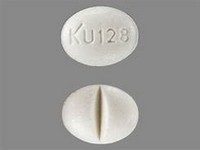Calcitriol

Calcitriol
CLINICAL USE
Vitamin D analogue:
Promotes intestinal calcium absorption Suppresses PTH production and release DOSE IN NORMAL RENAL FUNCTION
Orally: 250 nanograms daily or on alternate days, increased if necessary in steps of 250 nanograms at intervals of 2–4 weeks. Usual dose 0.5–1 micrograms dailyIV: treatment of hyperparathyroidism in haemodialysis patients: initially 500 nanograms (10 nanograms/kg) 3 times a week, increased if necessary in steps of 250–500 nanograms at intervals of 2–4 weeks. Usual dose 0.5–3 micrograms 3 times a week after dialysis PHARMACOKINETICS
Molecular weight :416.6 %Protein binding :99.9 %Excreted unchanged in urine : 7–10 Volume of distribution (L/kg) :No datahalf-life – normal/ESRD (hrs) :9–10/18–20 DOSE IN RENAL IMPAIRMENT
GFR (mL/MIN)
20 to 50 : Dose as in normal renal function. Titrate to response 10 to 20 : Dose as in normal renal function. Titrate to response <10 : Dose as in normal renal function. Titrate to response DOSE IN PATIENTS UNDERGOING RENAL REPLACEMENT THERAPIES
CAPD :Unlikely to be dialysed. Dose as in normal renal function HD :Not dialysed. Dose as in normal renal functionHDF/high flux :Not dialysed. Dose as in normal renal functionCAV/VVHD :Unknown dialysability. Dose as in normal renal function IMPORTANT DRUG INTERACTIONS
Potentially hazardous interactions with other drugsThe effects of vitamin D may be reduced in patients taking barbiturates or anticonvulsantsIncreased risk of hypercalcaemia if thiazides given with vitamin D ADMINISTRATION
Reconstition
– Route
Oral, IV Rate of Administration
Bolus Comments
– OTHER INFORMATION
Check plasma calcium concentrations at regular intervals (initially weekly)Dose of phosphate-binding agent may need to be modified as phosphate transport in the gut and bone may be affectedHypercalcaemia and hypercalciuria are the major side effects, and indicate excessive dosage
See how to identify renal failure stages according to GFR calculation
See how to diagnose irreversible renal disease
Home









